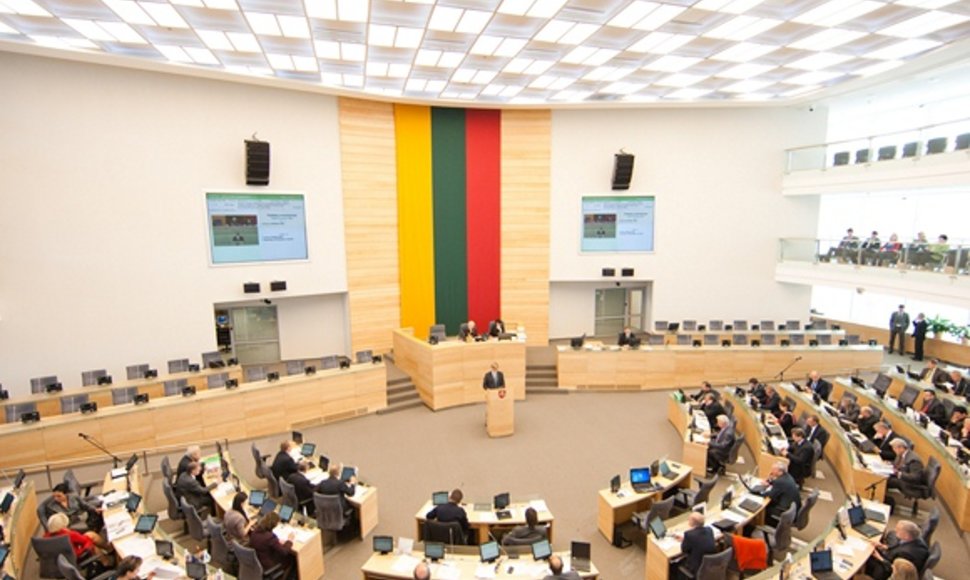On Tuesday, the resolution was supported by 51 parliamentarians, while 29 were against and 25 abstained. The resolution in support of the Constitutional Court's ruling, which said that priority votes were established through violation of the law, was short of votes.
"In this case, the decision taken by the Central Electoral Commission stays in effect," said Liberal MP Erikas Tamašauskas who presided over the meeting.
The resolution suggested eliminating Živilė Pinskuvienė, Jolanta Gaudutienė, Jonas Pinskus, Vytautas Gricius, and Viačeslavas Zdanovičius from the final list of Labour Party candidates. Three of them won seats in parliament.
According to the proposed wording, Pinskuvienė, Gaudutienė and Pinskus should be stripped of their mandates they won in the October elections, with the mandates going to Vilija Filipovičienė, Gediminas Jakavonis, and Larisa Dmitrijeva.
On Saturday, the Constitutional Court said the Lithuanian Central Electoral Commission's decision regarding the line-up in Labour Party candidate list ran counter to the law, even though it did not propose altering the total number of mandates won by the party.
According to the conclusion, the Central Electoral Commission failed to take into consideration all the available information about mass vote buying for some candidates when approving final election results and assigning seats to individual candidates.
The Central Electoral Commission also noted that up to 3,000 voters could have been bribed into voting for the Labour Party on 14 October and giving their priority vote for the party's candidates but did not refer to the materials in its decision, said the court.
Based on the court's finding, the parliament is to make its final decision in connection to violation of election laws.
Once the Constitutional Court decided that there had been a gross violation of the Law on Elections to the Seimas and the violation affected the overall election results, the parliament must approve one of the following resolutions: invalidate elections in single-mandate constituencies or multi-mandate voting, thus calling a new election, or modifying current results so as to offset violations.












